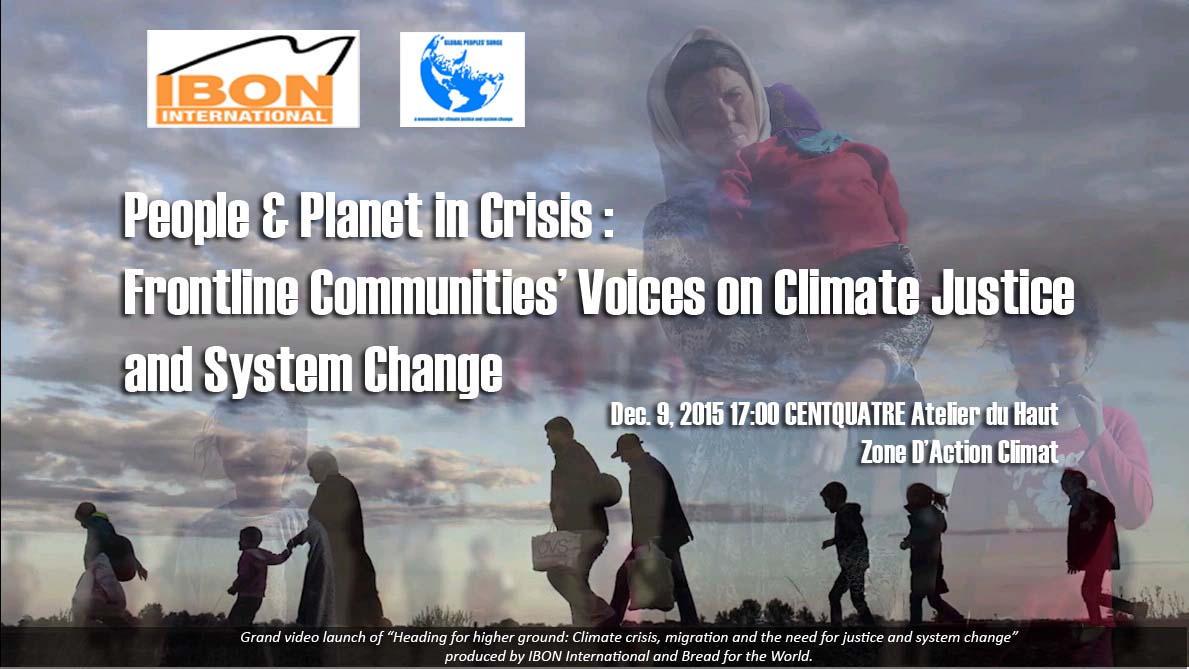
Global Peoples’ Surge in Paris: Voices of Frontline Communities
People & Planet in Crisis: Frontline Communities’ Voices on Climate Justice and System Change

People & Planet in Crisis: Frontline Communities’ Voices on Climate Justice and System Change
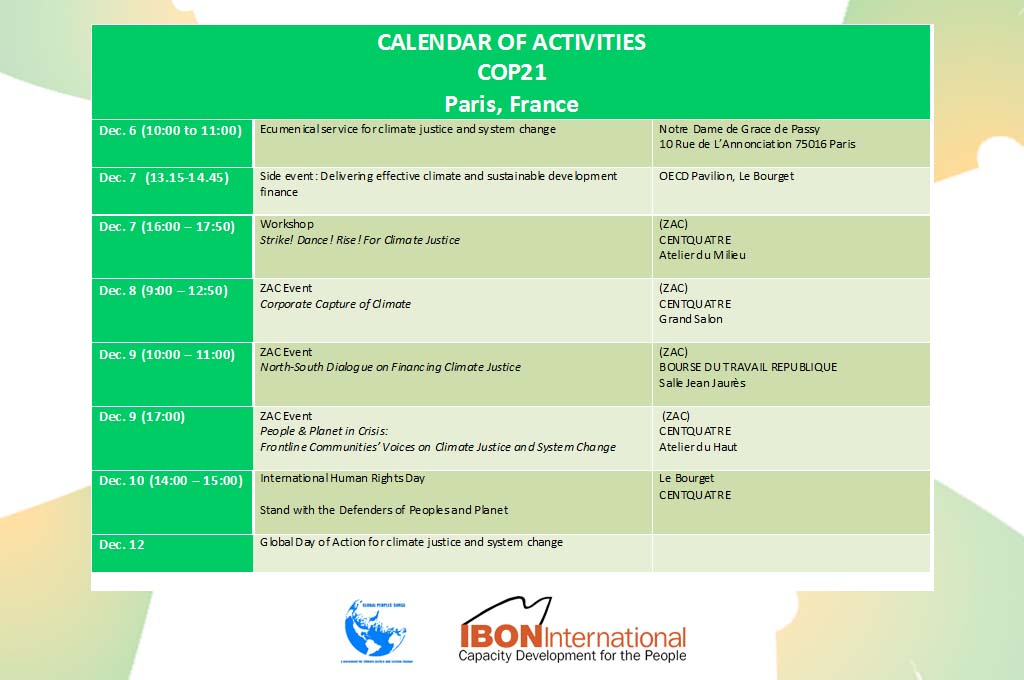
Calendar of Activities for COP21

Calendar of Activities for COP21
Over 130 Heads of State have arrived in Paris in an attempt to sign a new global agreement, amidst high expectations of people all around the world for urgent and meaningful action to respond to the climate crisis. Just over the weekend, the world saw the biggest ever climate marches of almost 1 million people gathering in 175 countries demanding leaders to come to an agreement that is binding, ambitious, durable and just, to replace the Kyoto Protocol and to take effect in 2020. This new climate deal that is yet to be agreed on is quite controversial already in the approach it takes, as it calls on each and every government to say just what and how much it is willing to undertake actions to reduce emissions, provide finance, and adapt to the increasing impacts of climate change.
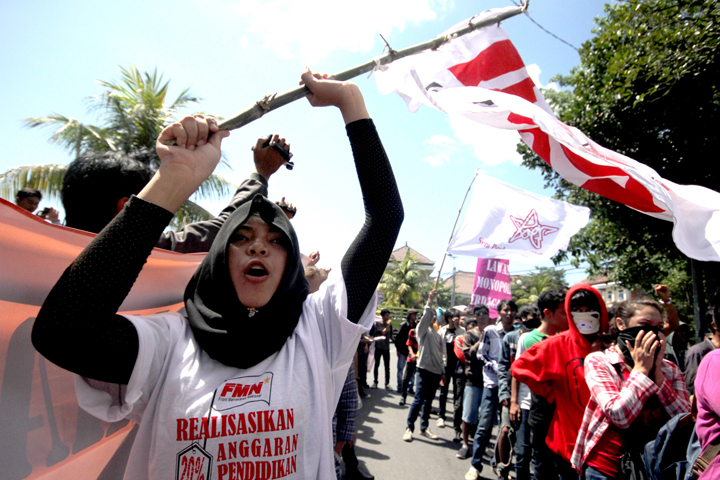
Twenty years since its establishment, the World Trade Organization (WTO) remains one of the most important mechanisms used by the global monopoly capital to advance neoliberal trade and concentrate wealth at the hands of the richest one percent. By imposing trade rules that empower transnational corporations (TNCs) from rich countries, the WTO serves to keep the vast majority of countries underdeveloped while a tiny minority accumulates more power and wealth.
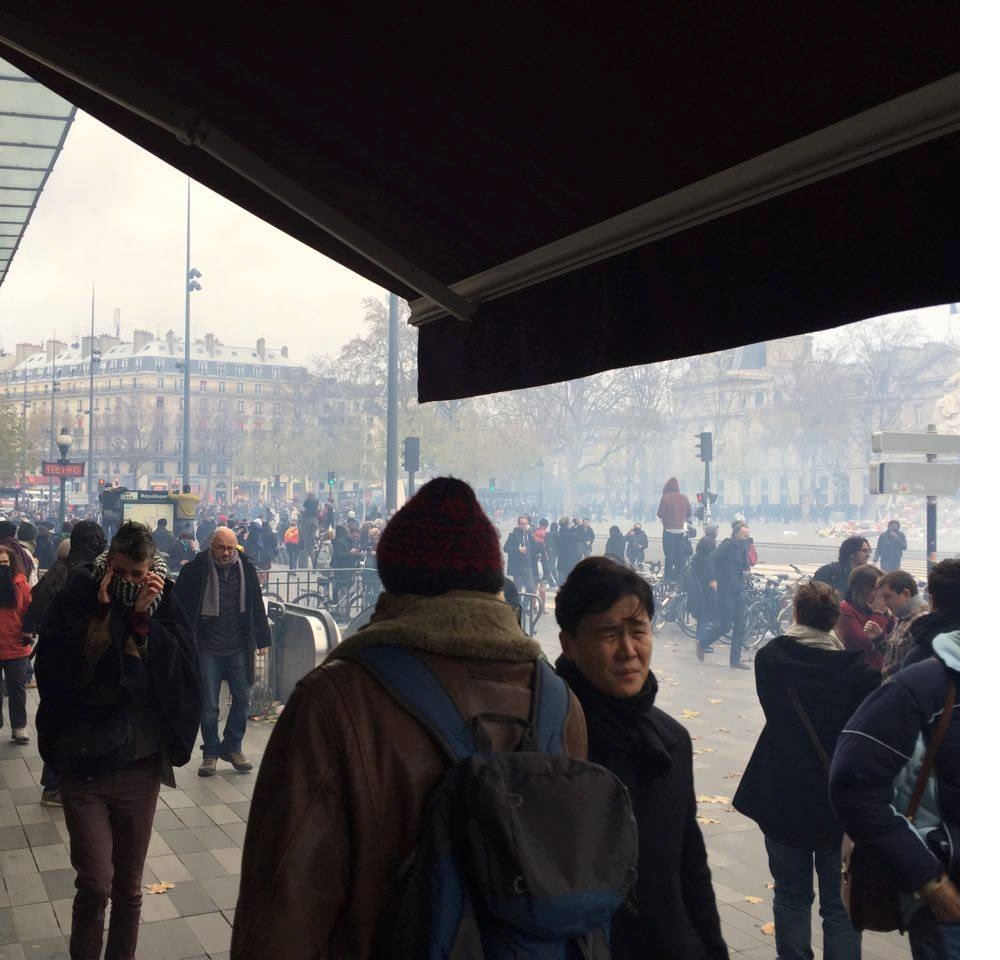
The 21st Conference of Parties of the United Nations Framework Convention on Climate Change (UNFCCC) opened today in Paris, where the world’s leaders are expected to come to an agreement on actions to solve the climate crisis.
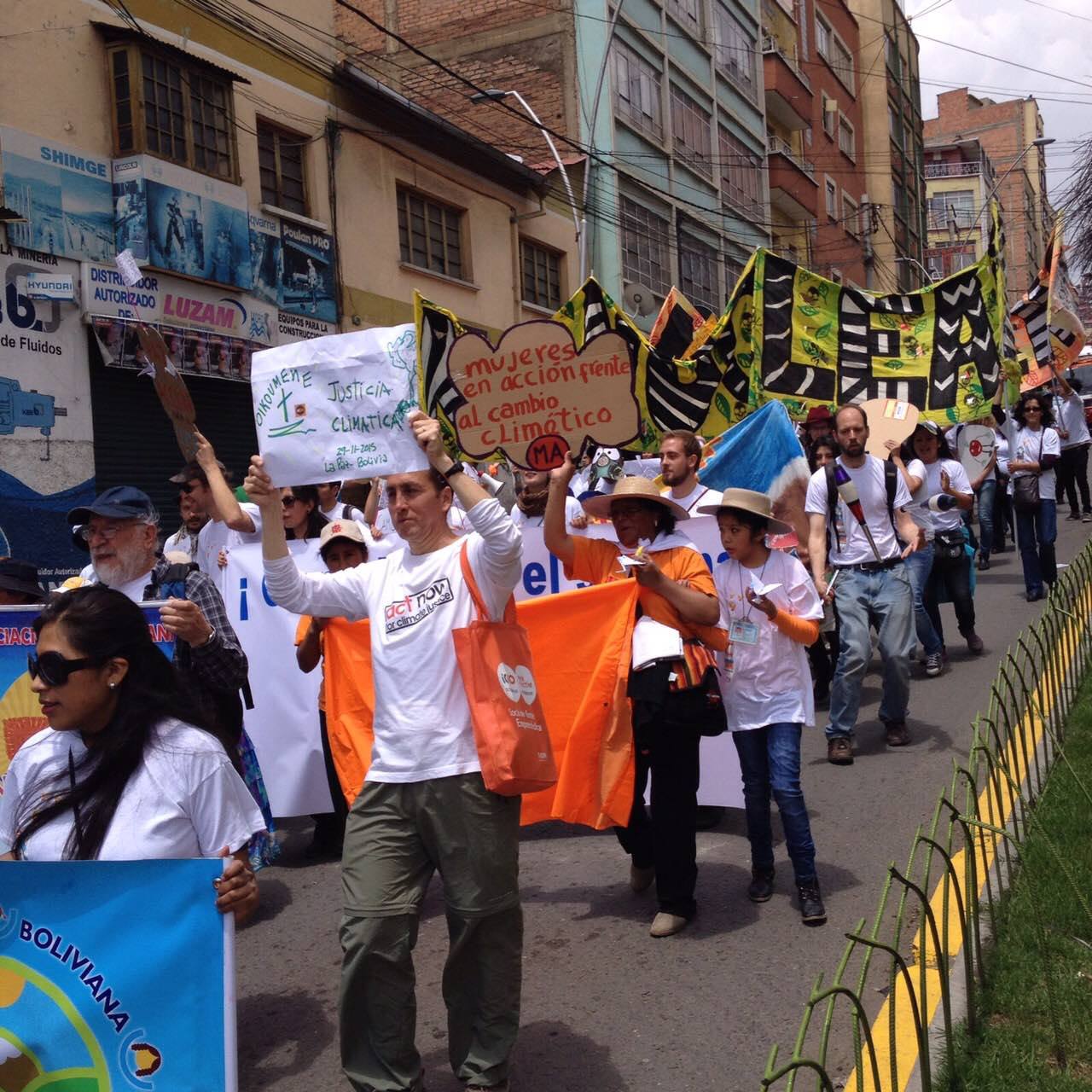
Even as authorities and world leaders try to suppress peoples protest surrounding the 21st Conference of Parties (COP21) to the UN Framework Convention on Climate Change (UNFCCC), to be held in Paris from November 30 to December 11, 2015, the people are unwavering in their stance for a genuine global climate agreement that reflects the peoples’ aspirations for social transformation and system change that will solve the roots of the climate crisis.
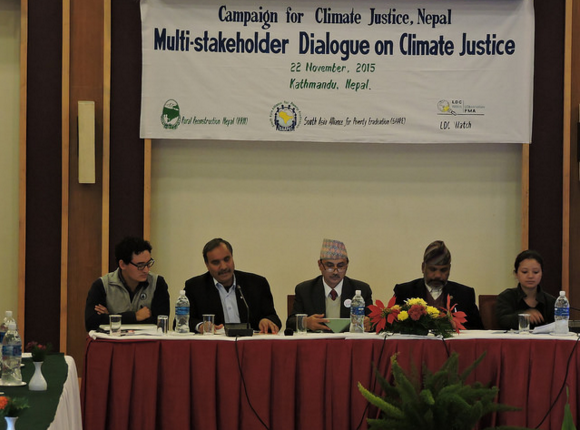
Campaign for Climate Justice Nepal (CCJN), in collaboration with Rural Reconstruction Nepal, South Asia Alliance for Poverty Eradication (SAAPE) and LDC Watch has organised a half-day “Multi-Stakeholder Dialogue on Climate Justice” on 22nd November 2015 in Kathmandu.
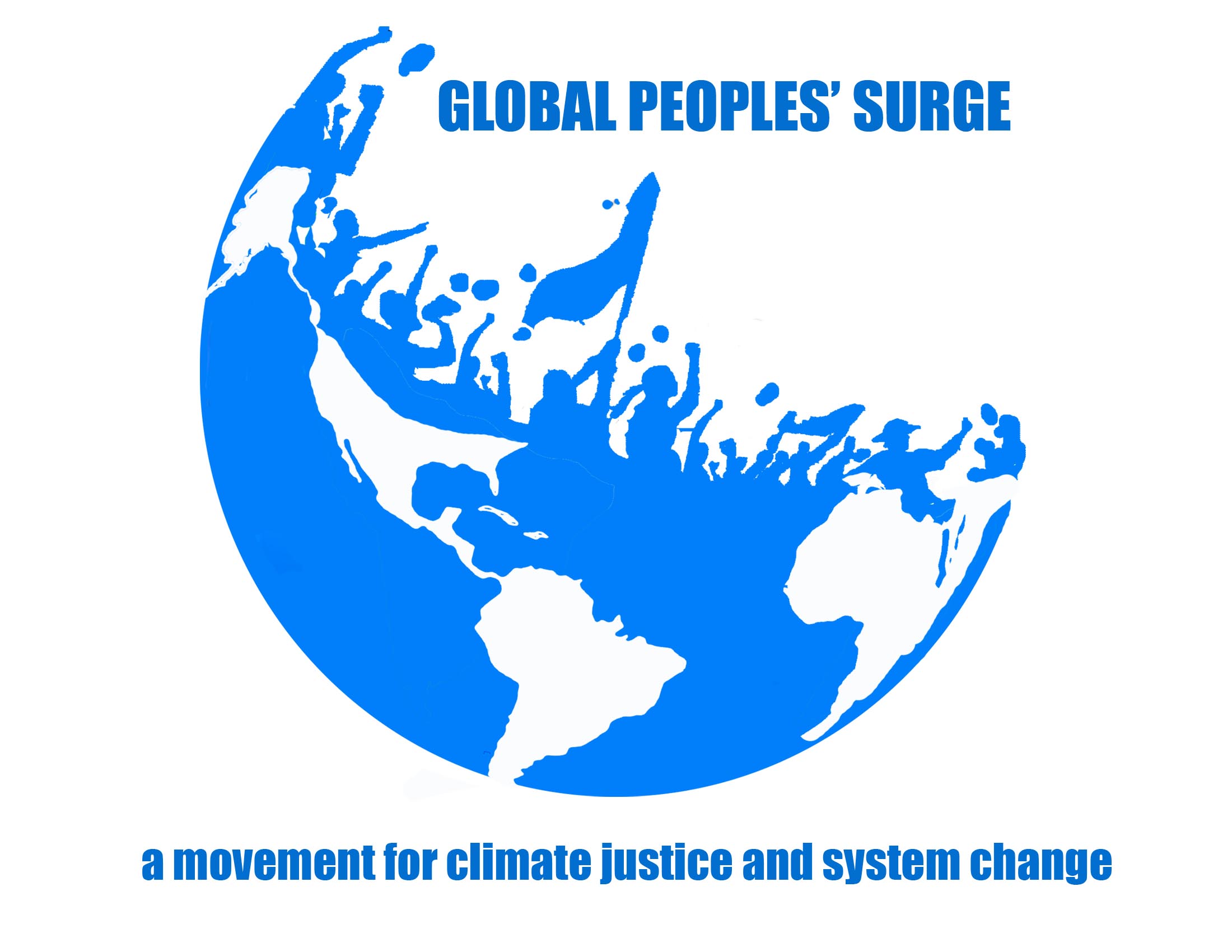
Selon l’OMS, chaque année le changement climatique tue en moyenne 140 000 personnes, tout en détériorant les déterminants environnementaux de la santé tels que l’alimentation, l’eau, ou l’habitat. 95 % des décès dus à des catastrophes naturelles ont lieu dans des pays du Sud.
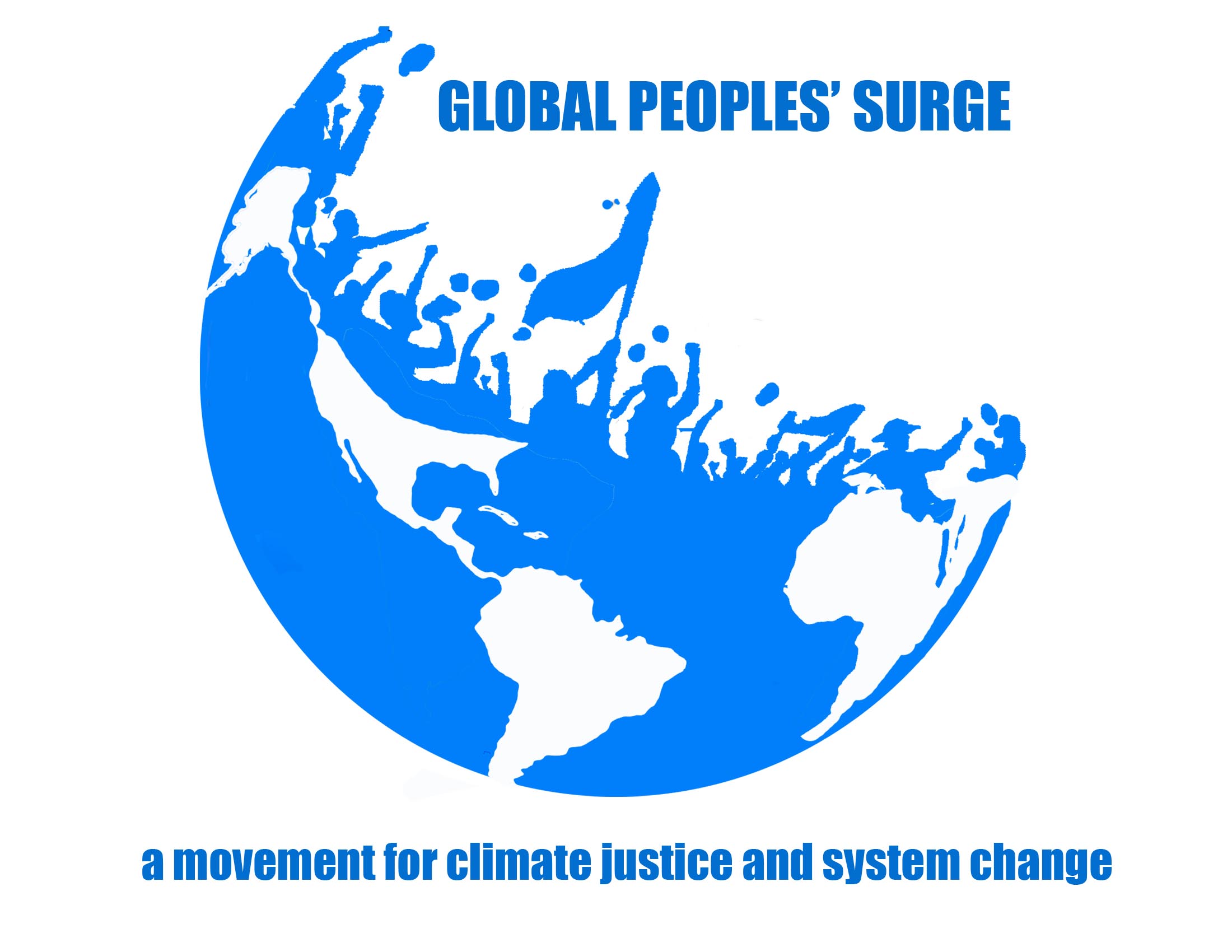
Climate change threatens the right to health. According to the World Health Organization, climate change is already responsible for approximately 150,000 deaths every year. It also worsens environmental conditions, contributing to poorer health, nutrition, and water quality.
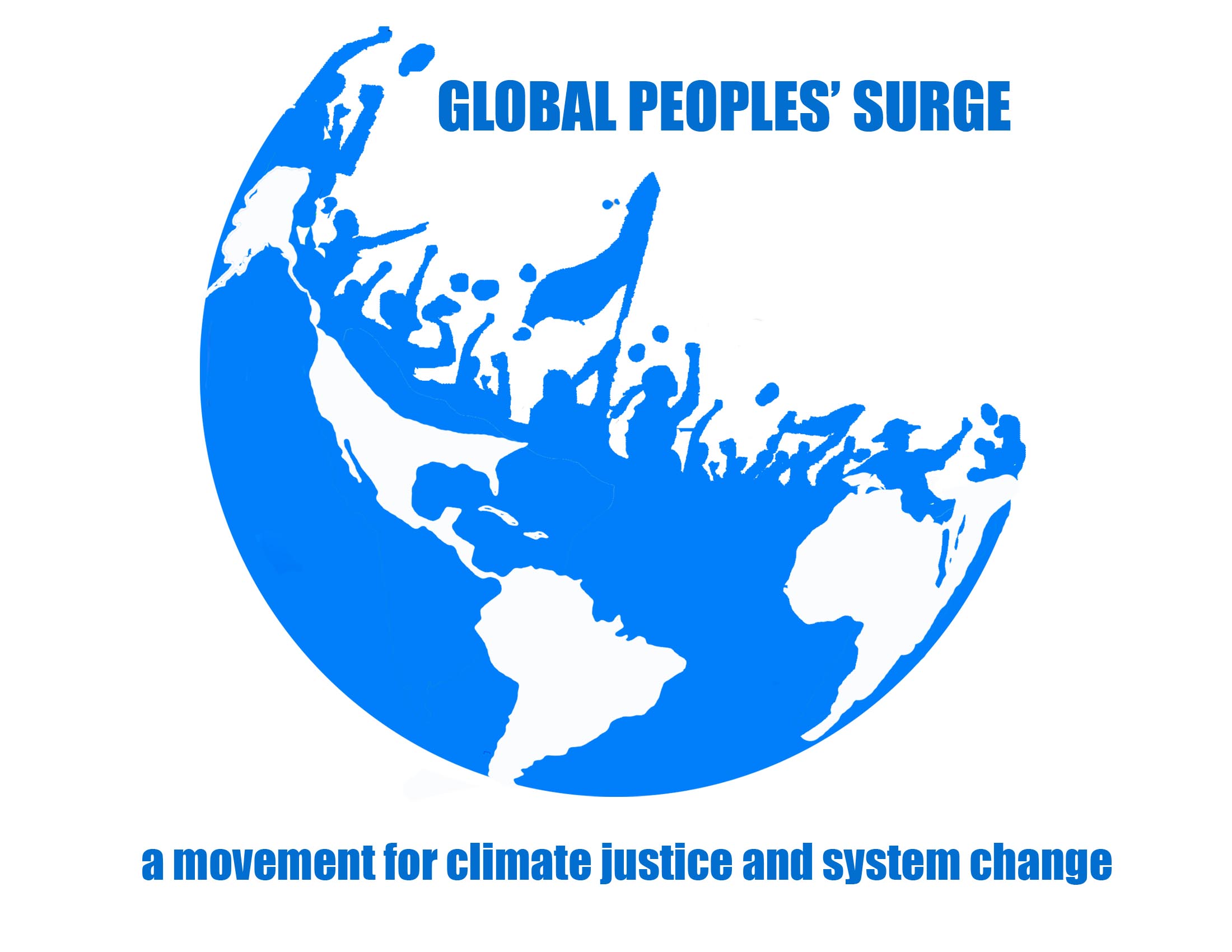
In West Africa, tax evasions by multinational corporations are costing billions in local currencies to ECOWAS countries. According to several estimates they exceed international development assistance. So these losses affect government budgets and public spending on basic social services. This, in turn, affects poor and low income families.
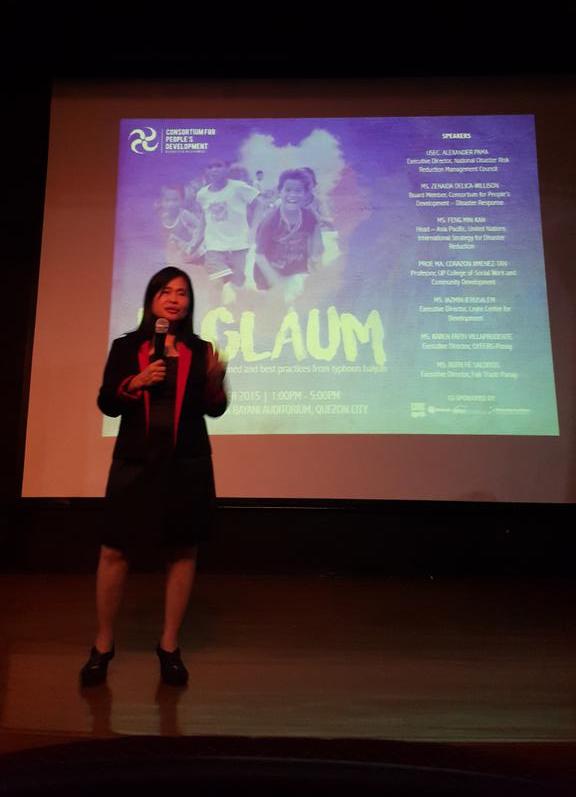
As the country commemorates the second anniversary of supertyphoon Yolanda (international name: Haiyan), a network of NGOs challenged presidential candidates to present their own disaster response agenda.
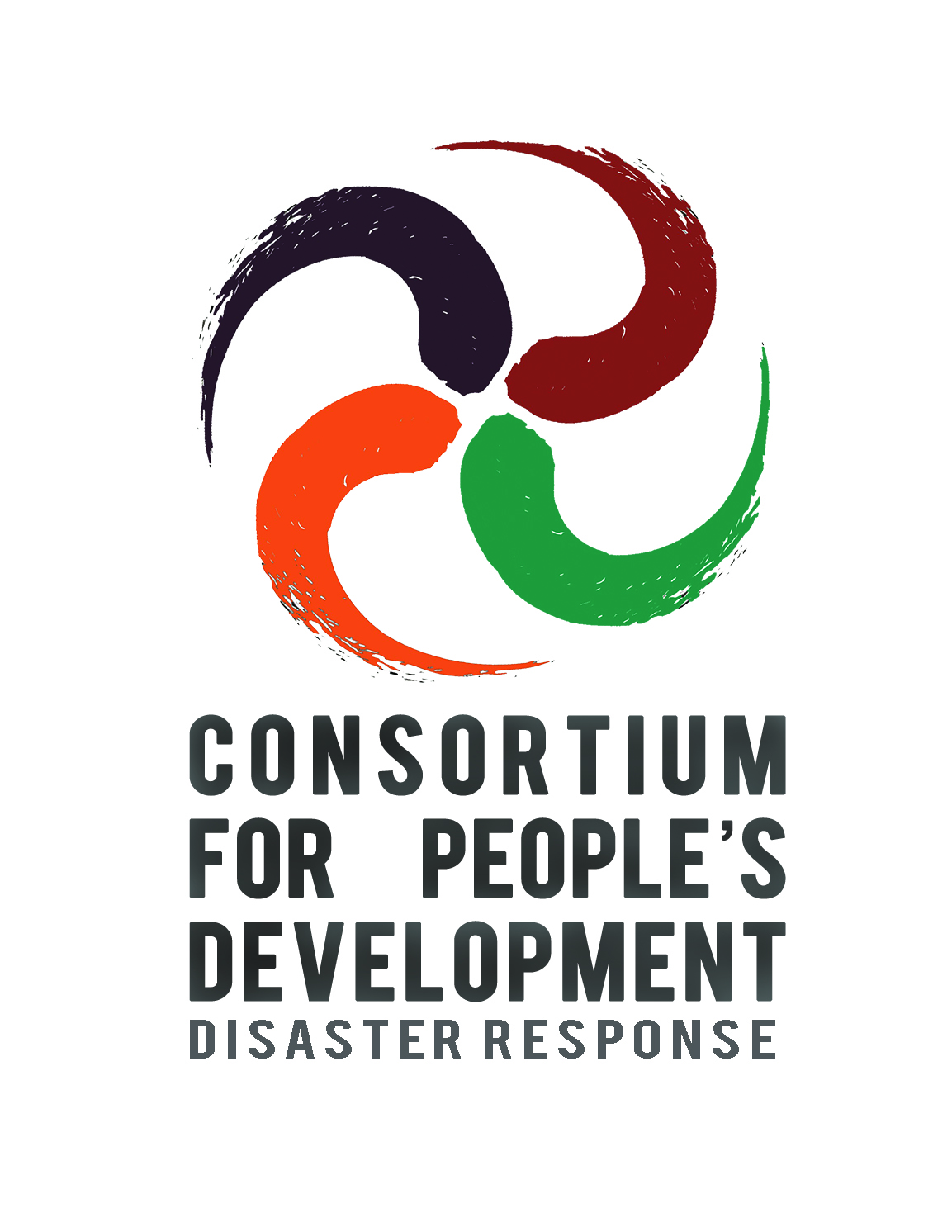
A consortium of non-government organizations branded the failure of government agencies to spend funds for disaster victims and to implement the much-need housing project as callous and immoral.
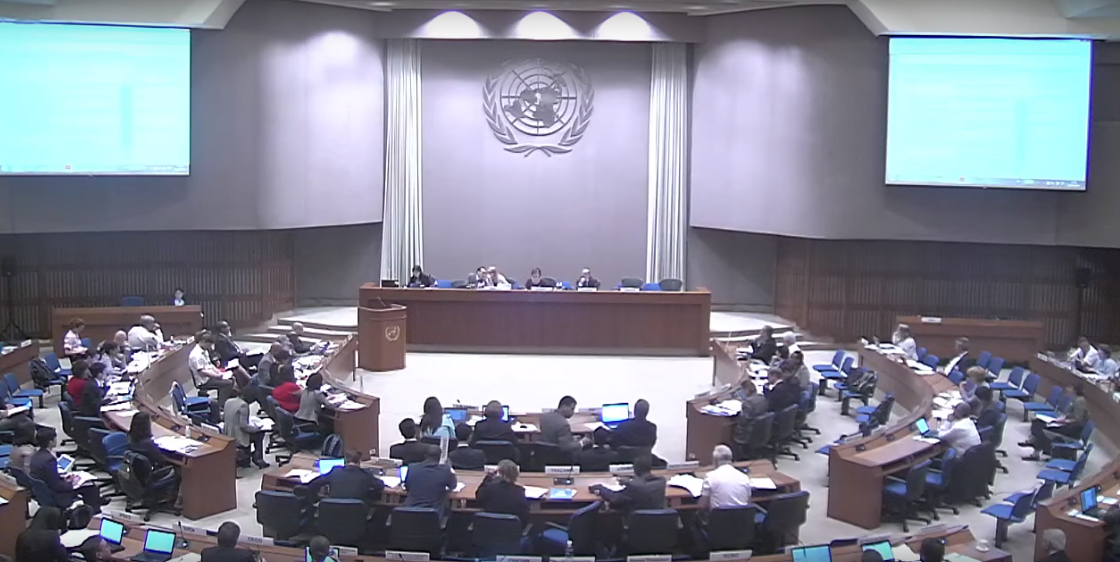
The Second meeting of the Inter-Agency and Expert Group on the Sustainable Development Goals (IAEG-SDGs) took place in Bangkok, Thailand, on 26-28th October 2015. Statistics experts from 28 national governments convened with the objective of coming to an agreement on the list of indicators to measure progress for each of the 17 SDGs ratified last September during the United Nations General Assembly.
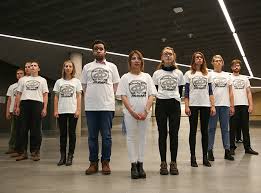
The Bonn climate change negotiations commenced last October 23, 2015 with a still contentious 33-page draft negotiating text.
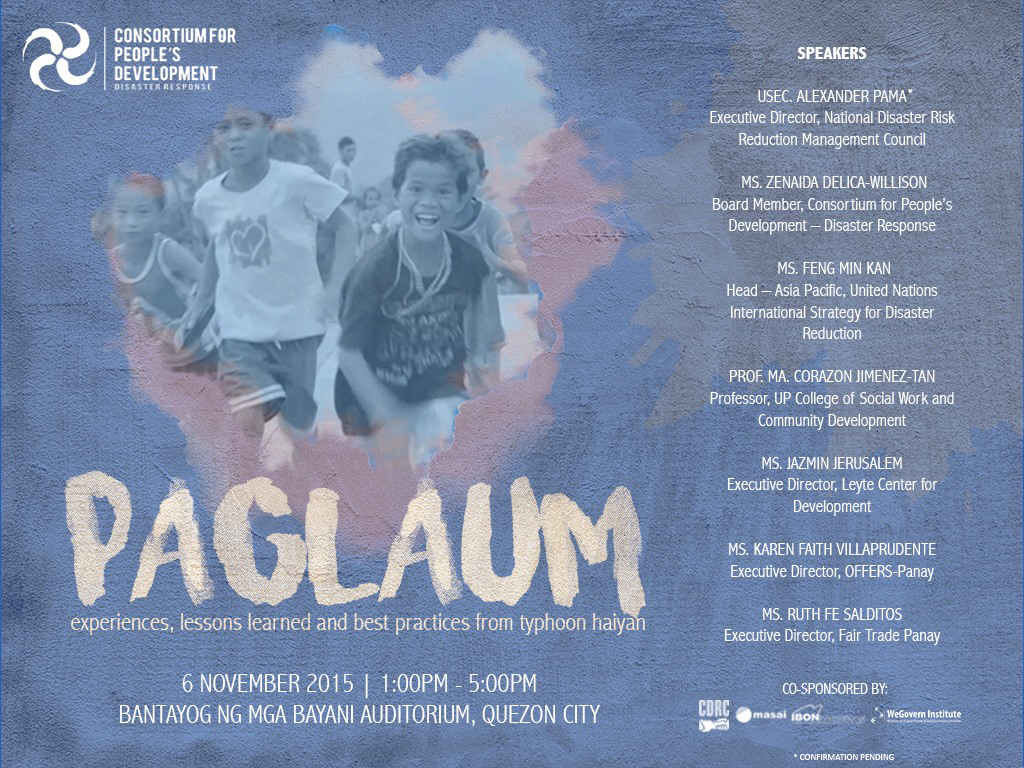
The Consortium for People’s Development – Disaster Response (CPD-DR), a national, multi-stakeholder consortium of development and humanitarian organizations that seek to facilitate the development of comprehensive community-based, and relevant people-oriented disaster risk reduction initiatives, will hold PAGLAUM: Experiences, Lessons Learned, and Best Practices from Typhoon Haiyan on November 6, Friday, from 1:00 PM – 5:00 PM at Bantayog ng mga Bayani Auditorium, Quezon City.